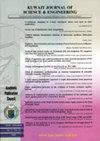Controlling the nanoparticle size of silica in an acidic environment by using a strong magnetic field and a modified sol-gel techniques
引用次数: 2
Abstract
In this study, we were able to create highly dispersed silica nanoparticles with diameters of less than one nm by changing the sol-gel technique. During the poly-condensation process, a strong magnetic field was applied to the silica sol to control particle size. The size of silica nanoparticles has a substantial impact on preparation elements such pH, magnetic field intensity, and exposure time. These parameters can be changed in a systematic manner to reduce or increase particle size. A dynamic light scattering test was also used to investigate the effect of a magnetic field on the particle size and dispersion of silica dust. Despite the fact that silica is naturally diamagnetic, the magnetic field has a considerable impact on their size growth. Magnetic fields altered the typical influence on silicon structure, resulting in crystal formation in the silicon sample under consideration. Many applications require small particle sizes and/or a narrow particle size dispersion. The building blocks of nanotechnology are usually made of low-dimension particles. The experts concluded that additional research into such strange phenomena will be required in the future.利用强磁场和改进的溶胶-凝胶技术控制酸性环境中二氧化硅纳米颗粒的大小
在这项研究中,通过改变溶胶-凝胶技术,我们能够制造出直径小于1纳米的高度分散的二氧化硅纳米颗粒。在缩聚过程中,对硅溶胶施加强磁场来控制粒径。二氧化硅纳米颗粒的大小对制备元素如pH值、磁场强度和暴露时间有很大的影响。这些参数可以系统地改变,以减小或增加颗粒尺寸。采用动态光散射试验研究了磁场对硅尘粒径和分散性的影响。尽管二氧化硅是天然抗磁性的,但磁场对它们的尺寸增长有相当大的影响。磁场改变了对硅结构的典型影响,导致所考虑的硅样品中的晶体形成。许多应用需要小粒度和/或窄粒度分散。纳米技术的基石通常是由低维粒子构成的。专家们得出结论,今后需要对这种奇怪的现象进行进一步的研究。
本文章由计算机程序翻译,如有差异,请以英文原文为准。
求助全文
约1分钟内获得全文
求助全文
来源期刊

Kuwait Journal of Science & Engineering
MULTIDISCIPLINARY SCIENCES-
自引率
0.00%
发文量
0
审稿时长
3 months
 求助内容:
求助内容: 应助结果提醒方式:
应助结果提醒方式:


